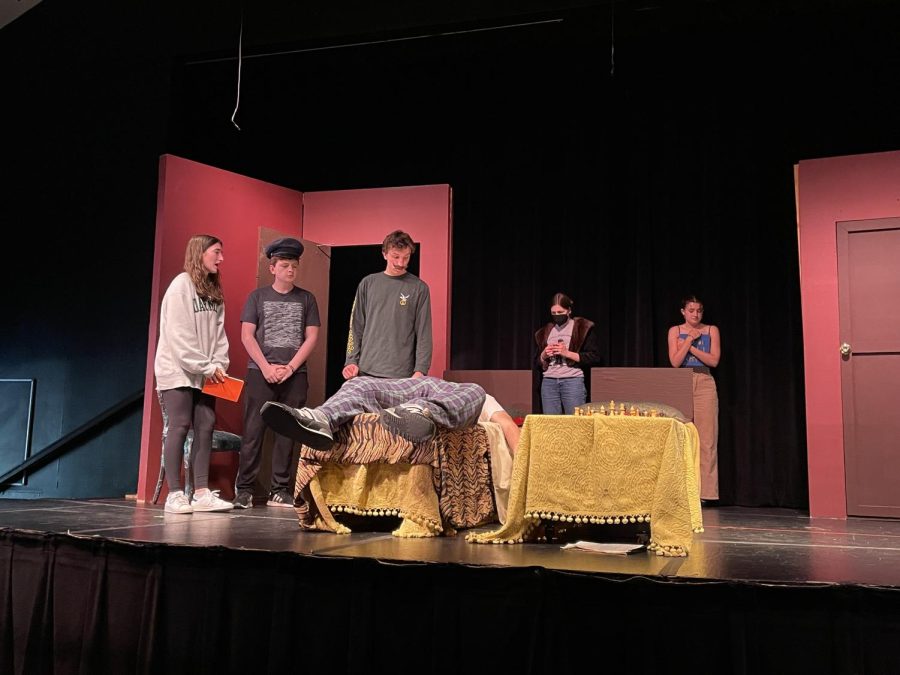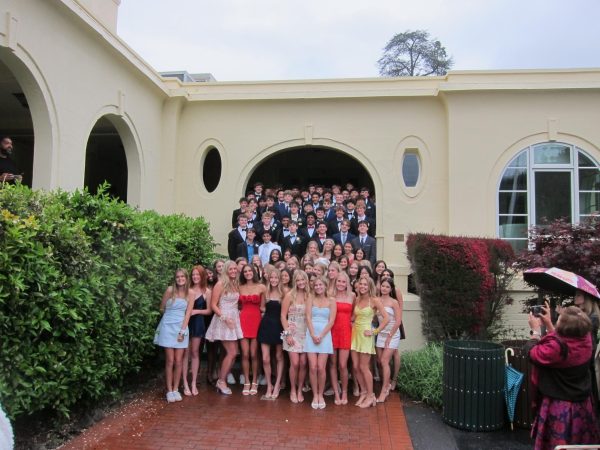All aboard the Orient Express: A look into Branson’s spring play
Actors rehearse for their first show on March 24.
March 18, 2022
The spring play is leaving the train station at Branson, with opening night less than a month away.
The play, “Murder on the Orient Express,” will be Branson’s first non-musical production this year, as enabled by easing COVID restrictions compared to last spring.
“I’m excited because this is my first play at Branson. Last year, obviously, with COVID, I couldn’t even audition for the play,” Max Mohan, a sophomore, said.
When asked about the audition process, Mohan said it was “super chill, super relaxed.”
Other actors had a much different, much more difficult audition experience.
“I had COVID as the audition process was happening,” Alexander Golden, a sophomore, said. Golden added that Maura Vaughn, the director of the play and director of theater at Branson, was able to use his previous work for his audition.
![]()
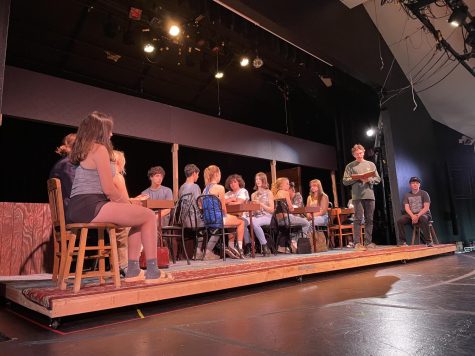
The actors in this play have to deal with a plethora of social, cultural, and economic issues in the 1930s. Vaughn said that because of the adversity that the characters faced in the play, we can use this play to look at our current situation, though with very different issues and problems, as well as a different urgency and severity.
“The crash happens in ’29 and, of course, they don’t know this, but World War II is in the process of happening … Agatha Christie [the book’s author] comments on what’s happening in the world,” Vaughn said. “There is a sort of tension, reflecting the tension of their time, [and in our time we have] omicron, COVID, political divide … amidst all of this we can only see so much. We can look at what they saw and what they didn’t see. Those are the things we need to start doing for ourselves, because, like them, we can’t prioritize everything — but we better prioritize something.”
There is a lot that cannot be controlled in our current political climate, but there is one thing that we can do, and, although it sounds cliché, we can find ways to work together. At the fundamental level of this play is the idea that different people from different backgrounds are forced to work together.
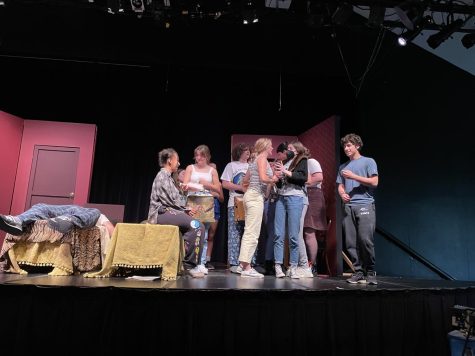
In the real world, we are all on earth together, and in “Murder on the Orient Express” all the characters are stuck on the train together, which makes it that much more of a mystery — and that much more similar to our current day and age where we must deal with issues collectively.
“Everyone is involved in this complicated murder, and every character is at least a little bit suspicious [leaving it up to] the audience to try and figure out which one of them did it. Every character has their moment where you [think] it has to be him,” Golden said.
“There are a lot of layers to it … just a well-crafted murder mystery. Each suspect has a secret. And how these secrets get unearthed is that next layer [of mystery],” Vaughn said.
The mystery aspect certainly adds a lot to the viewer’s experience.
“Every single person is hiding something. What I am looking forward to is [projecting] the anxiety. It does require some text work,” Mohan said. “For example, the main scene I’m in: I’ve read it so many times. And it is almost like English class because you have to closely read it and find the deeper meaning behind it. Then you have to find out how you can show the audience what you are saying without actually saying it. We call it the internal monologue. It’s how you convey emotions and ideas without [explicitly saying them].”
“Murder on the Orient Express” also gives actors the opportunity to try a variety of new things and push themselves as actors — like learning a new accent.
“What excites me about [playing] Count Andrenyi is that he is Hungarian. So I needed to learn a Hungarian accent. Maura’s husband is helping with accents, so [it should] be fun,” Mohan said.
There seem to be new opportunities for the actors on all fronts.
“One thing I love about this play is that it’s just acting, and I have never done just strictly acting before,” Golden said. “When I was cast for the show, I hadn’t even seen the show, but when I saw the movie I was really amazed and trying to figure out who it was, and you know the ending was very cool as well. … I hope there are some people in the crowd who have never seen the show before.”
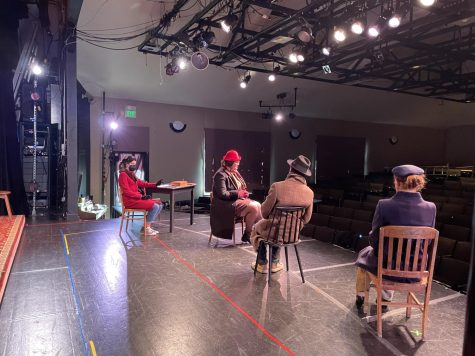
But what will this play be like for the audience?
“You kinda feel like you are the detective as well as Hercule Poirot, the main guy trying to figure out who did it, and you get to be with him and get to take that in,” Golden said. “I think it will be really cool for the audience to try and solve the murder mystery. I think that’s how it works for all murder mysteries in general, but in particular, I think it will be really cool just because of the nature of how every character [could be the murderer].”
“Murder on the Orient Express” is shaping up to be not only an intriguing and fun mystery but also a play with elements which we can see reflected in our common day, supported by great actors and put together by a crew.
“Theater gives us the opportunity to hold a mirror up to where we are now and gives us opportunities to lean into where we are now. [We can identify] the things that are immediately easy — and the things that are not,” Vaughn said.

